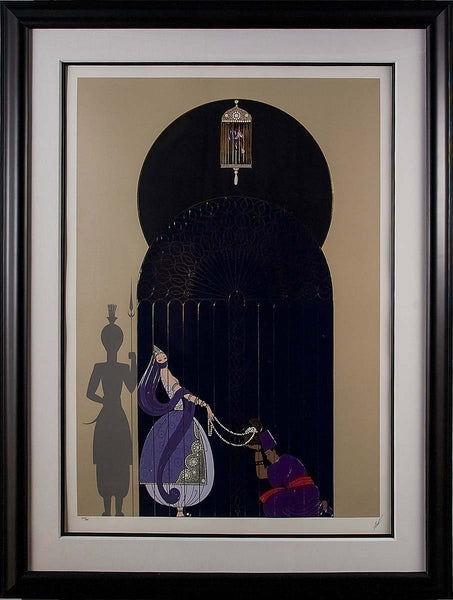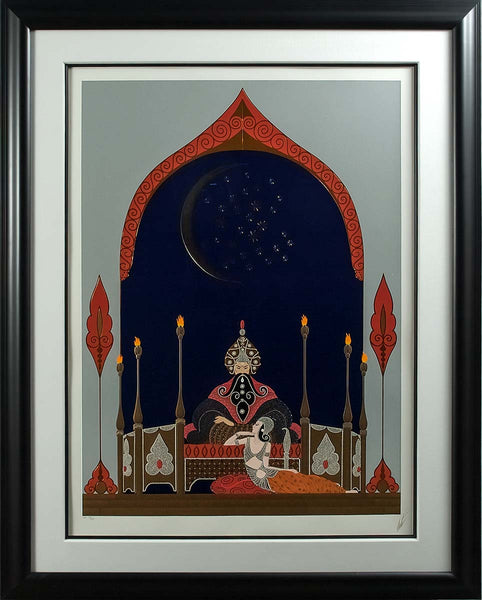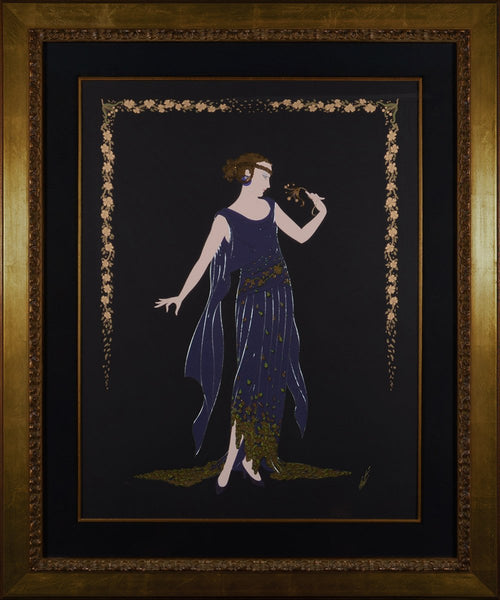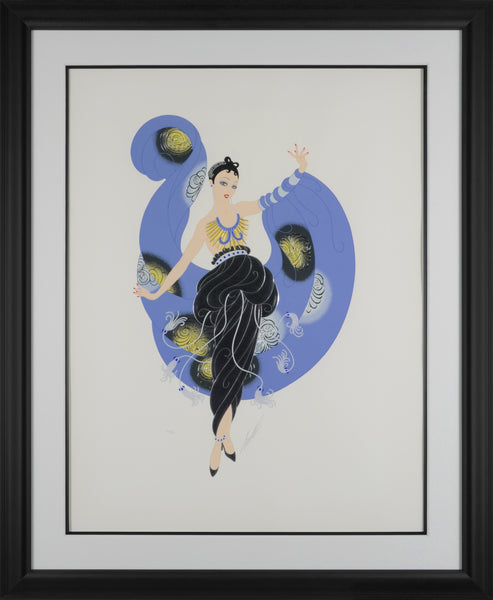Upload a photo of your space
For best results we recommend marking 10 inches on your wall with tape to get a sense of scale. Make sure to have the floor visible in the photo.
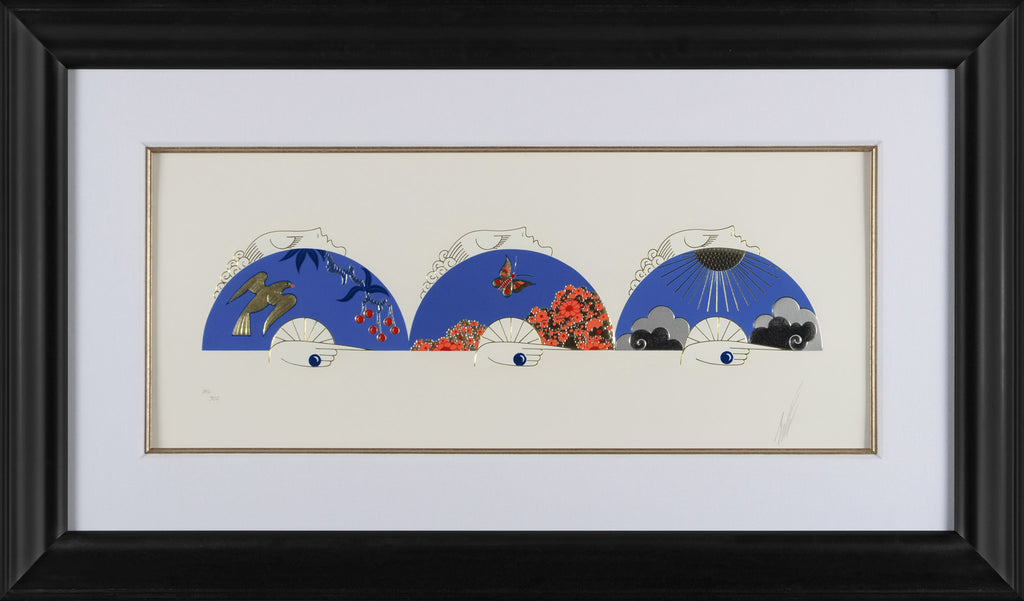

About the Work
Stylistically, the Art Deco period is distinguished by the dramatic use of geometric decorative patterns. In Daydream, we are drawn immediately to his clever repetitive use of semi-circles, each seemingly similar, though each a narrative panel leading from one to the another. At first glance, we see three striking cobalt blue arcs amidst a pure white background. Upon a second glance, these arcs are actually a trio of decorative fans, each held by the delicate hand of a woman. Above each fan, is the woman's refined profile, eyes closed, in a dream-like state. Like the hands, each face is drawn with a defined precision that is distinctly Erté. Charles Spencer in the monograph, Erté, has written about the artist's hallmark style, "What makes the unceasing flow of ideas even more impressive is the precision of the drawings, in which his firm, steely line is matched by exquisite detail."It is apparent that Erté was greatly influenced by his travels to the Far East and this is evidenced by his frequent incorporation of 'chinoiserie' into his designs. In this image, it is the oriental fans that are the focus, each with a decorative element (a bird in flight, a butterfly floating above a sea of azure, and a radiant sun) perhaps the images in the minds of the women who daydream behind them.
Robert de Beauplain in "La Petite Illustration" wrote that Erté's work was of a 'manner which bridges the occident and the Orient, in a style that is essentially modern. In the case of Daydream, the overall design is indeed fundamentally modern while at the same time a testament to Erté's ability to create sheer beauty from the simplest series of shapes and lines.
About the Artist
Erté was born Romain de Tirtoff in St. Petersburg, Russia on November 23rd, 1892 and was raised amidst Russia's social elite. At the age of five he created an evening gown for his mother and managed to persuade the adults to craft it, they were astounded by the results. In 1912, Romain left St. Petersburg for Paris at the age of nineteen with the aim of becoming an artist. After working with Paul " Le Magnifique" Poiret on several theatrical productions Romain, still under the pseudonym of Erte, began to work more independently. He hand-crafted original costume and fashion designs for many of the era’s most renowned actresses, including Joan Crawford, Lillian Gish, Marion Davies, Anna Pavlova, Norma Shearer, and others. His masterpieces for the stage included extravagant production designs at venues such as New York’s Radio City Music Hall, the Casino de Paris, and the Paris Opera. In 1915 he began his long professional relationship with Harper's Bazaar and created 240 covers for the esteemed magazine. For 6 months in 1916, Erté simultaneously worked with Vogue as well. As a result of his highly publicized success, Erté would later be called the father of the ‘Art Deco’ movement.
Please utilize the AR experience in a well-lit room.
Scan the room for surface detection.

Artwork will place in your room.
Using your fingers, align the horizontal white line
with your floor.

Double tap the artwork to scale to 100% size
and pinch to move on the screen.


